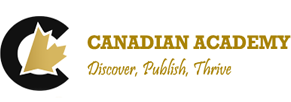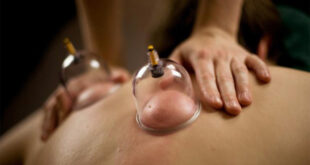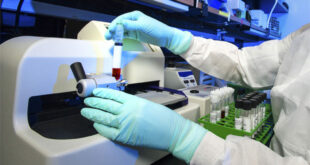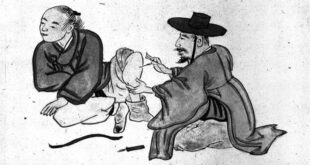We investigated how a ketogenic diet affects load control in trained individuals during a 6-week resistance training program, considering factors like sleep, diet, and fatigue that influence true load and daily readiness. This expands understanding beyond traditional one-repetition maximum tests. The ketogenic diet (KD) involves significantly reducing daily carbohydrate intake to less than 50 grams, while increasing fat and possibly …
Read More »Science
Attentional bias toward cupping therapy marks
We explored if individuals exhibit negative emotions and attentional bias towards painful marks left by cupping therapy on the body, as some patients find it challenging due to skin discoloration. Despite its medical advantages, fear of discomfort during cupping may lead to heightened vigilance towards pain-related cues. Fifty volunteers underwent visual stimulation involving various body regions with or without cupping …
Read More »Using language science to promote interest in science in a science museum
The study explored visitor reactions to a language science demonstration in a science museum, an area typically underrepresented. Language science, an interdisciplinary study, combines social and biological sciences with computer science and engineering, connecting strongly to humanities, education, and clinical fields. Qualitative analysis indicated that visitors found language science demonstrations engaging, learned key scientific points, and suggested that this topic …
Read More »Triple inhaled therapy for asthma in Canada
Many asthma patients with inadequate control on current inhaled therapies, including inhaled corticosteroids (ICS) and long-acting beta-2 adrenergic bronchodilators (LABA), benefit from the addition of a long-acting antimuscarinic agent (LAMA), especially through the use of single inhaler triple therapy (SITT) formulations. This approach addresses adherence concerns associated with multiple inhaler devices, and we discuss key data supporting the use of …
Read More »The clinic as laboratory: what epistemology for medicine?
Clinical medicine, despite facing criticism, grapples with the challenge of defining its theory and guiding doctrines. Over the past decades, tensions have arisen between scientific medicine and medical humanism, as well as between biomedicine and bio-psycho-social medicine, creating a debate around the art/science opposition without a conclusive resolution. Medicine’s epistemology is deemed insufficient or flawed, with various dichotomies such as …
Read More »Restituting Language: Ethics, Ideology and the Making of a Dictionary
I propose examining the ethical aspects of returning data to the research site in the Solomon Islands, focusing on the creation of the Pijin Dictionary in 2002. I explore the gap between collected linguistic data and the transformed output presented by linguists, emphasizing the influence of dictionary-making techniques and the linguistic ideologies of collaborators. Despite the dictionary being 20 years …
Read More »The surgeon’s acupuncturist: Philipp Franz von Siebold’s encounter with Ishizaka Sōtetsu and nineteenth century Japanese acupuncture
Philipp Franz von Siebold’s notes on acupuncture, unlike earlier European accounts, gained little attention upon his return to Holland in 1828. Siebold focused on the theories of Japanese acupuncturist Ishizaka Sōtetsu, who aimed to bridge Western and Sino-Japanese medicine. This essay explores Siebold’s encounter with Ishizaka, analyzes developments in Japanese acupuncture in the early 19th century, and discusses how Ishizaka …
Read More » Canadian Academy Discover, Publish, Thrive
Canadian Academy Discover, Publish, Thrive






